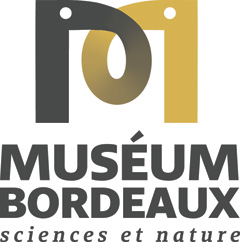Year 7
Classification by scientists tells the evolutionary history of living beings and their relationship to one another. Evolution has become one of the cornerstones of teaching life and earth sciences at middle and then secondary school.
The image of a tree has replaced the ladder of natural beings posited by Charles Bonnet. While Ernst Haeckel introduced the term ‘phylogeny’ back in 1866, it was not until the second half of the 20th century following publication of works on the phylogenetic systematic model by Willi Hennig that its concepts and methods were further developed.
This modular workshop can be adapted to the level of the group. It can start with a game consisting of grouping wooden objects based on a range of criteria. Pupils can then split into groups and study 7-8 specimens. This observation and description exercise, the aim of which is for pupils to determine a specimen's attributes, is an important first step for then drawing up a classification and assigning each specimen to a group.
The classification activity can be different from the determination process which uses a dichotomous key to identify an animal or its group.
Workshop aims:
- Identify the different actions for putting things in order
- Present the notion of attributes and identify the ones used to characterise animals
- Realise that the diversity of attributes and selection criteria adopted influence the resulting classification
- Realise that animals share common attributes, identify them and summarise them based on the specimens on display
- Classify animals into nested groups
- Understand the principle of phylogenetic classification
During the workshop, the facilitator will present a selection of 50 specimens from the Museum of Bordeaux collections including arthropods, molluscs, amphibians, mammals and birds. Participants will also be introduced to learning resources specially devised for the workshop.
To book a workshop of The Museum comes to you and on all administrative matters, the secretariat is listening to you.
By phone: 05 24 57 65 30
By e-mail: museum@mairie-bordeaux.fr





